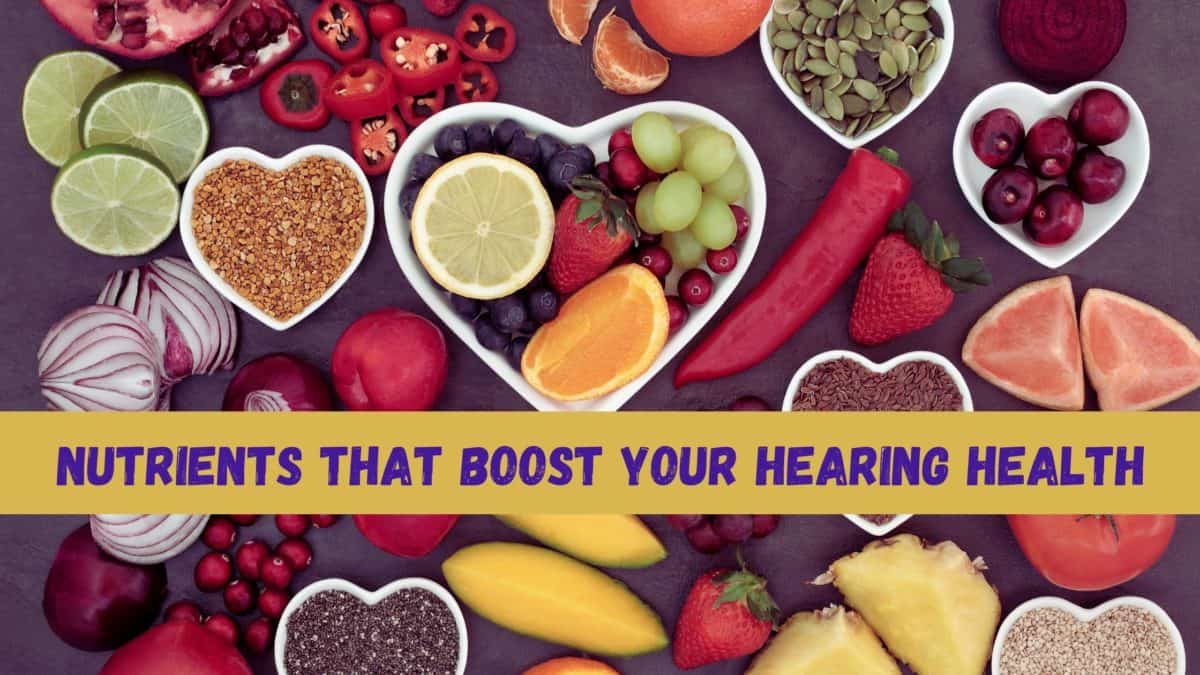- Strategies for Coping with Single-Sided Deafness - July 15, 2024
- How Summer Humidity Affects Hearing Aid Performance - July 3, 2024
- The Power of Body Language: Enhancing Communication for Those with Hearing Loss - June 28, 2024
They say you are what you eat, and it’s true that eating a healthy diet does improve your health. Did you know that your diet can impact your ears as well? Vitamins and minerals are extremely important for healthy hearing. Here are some nutrients that boost your hearing health.
Magnesium
Let’s start with some important minerals. Magnesium is a mineral that can actually reduce your risk of noise-induced hearing loss! Magnesium can combat free radicals present in loud noise. This protects the delicate cells in the inner ear and can lower your risk of hearing loss.
Having too little magnesium in your diet can also be a problem. Low levels of magnesium can impact your blood cells, causing the blood vessels to shrink. This impacts your ears by reducing the amount of oxygen available.
Some sources of magnesium can include bananas, spinach, broccoli, and tomatoes.
Potassium
Potassium is another important mineral. It helps regulate fluid in your body, including fluid in your inner ears. Getting enough potassium in your diet will help regulate the fluid in your ears, making sure the cells in the inner ear can sense sounds, translate these sounds to electrical impulses, and send signals to the brain.
Potassium levels tend to decrease as we age, increasing the risk of age-related hearing loss. Make sure you’re getting enough potassium in your diet to keep your ears healthy.
Natural sources of potassium include potatoes, beans, apricots, bananas, oranges, and dairy products.
Zinc
Zinc plays a role in your immune system. This mineral is involved in cell growth as well as healing wounds or infections. It can help prevent getting a cold or an ear infection. Zinc may even help manage tinnitus. Eat foods high in zinc, but always consult your doctor before taking zinc supplements.
You can find zinc in pork, beef, chicken, nuts, lentils, and dark chocolate.
Vitamin B9
Now let’s look at vitamins. Vitamins are essential nutrients that are involved in hundreds of processes throughout the body. Your body needs vitamins for cell growth, bone health, immune system function, and much more. Vitamins are also important for your ears.
Vitamin B9, or folate, helps your body turn food into fuel. It plays a major role in helping you have the energy you need. Low levels of folate have been linked to hearing loss. Eating foods that contain folate can reduce your risk of hearing loss by improving blood flow and ear health.
Folate is found in dark leafy vegetables, nuts, seeds, many fruits, and whole grains.
Vitamin C
Vitamin C is important for your immune system. Whenever you have a cold, you take some extra vitamin C to give your body a boost. This vitamin can also lower your risk of hearing loss! Along with magnesium, vitamin C can protect your ears against free radicals and prevent hearing loss. Vitamin C is also an essential nutrient that promotes bone and skin health and can improve blood circulation.
Many fruits and vegetables are high in vitamin C, including dark leafy greens, citrus fruits, berries, bell peppers, broccoli, and papaya.
Vitamins A and E
Vitamins A and E are a powerful duo when it comes to hearing health. Both these vitamins can reduce the risk of hearing loss. Vitamin E can reduce the risk of hearing loss by 14%. Meanwhile, vitamin A intake can reduce the risk of moderate hearing loss by 47%! If you’ve been wondering what you can do for your hearing health, take a look at your diet and make sure you’re including these essential nutrients.
To get your daily dose of vitamin A, look for foods such as beef liver, kale, spinach, eggs, dairy products, carrots, and sweet potatoes. You’ll find vitamin E in seeds, nuts, collard greens, avocadoes, and kiwi.
Schedule a Hearing Test
These nutrients can all boost your hearing health. But your diet isn’t the only thing that impacts your hearing. If you’ve noticed any changes in your hearing health, book a hearing test. This test will show you if you have hearing loss, the degree of hearing loss, and even what kind of hearing loss you have. Armed with this information, you can make smart decisions about treating hearing loss. Contact us today to schedule an appointment!

